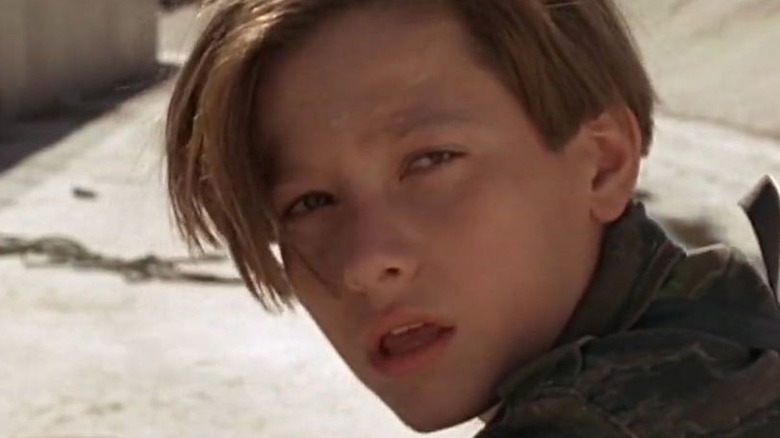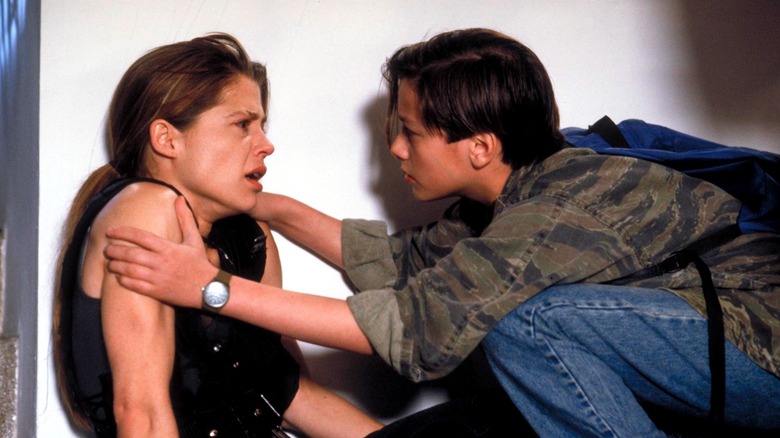You Won't Believe How James Cameron Got Inspired To Create Terminator 2's John Connor
Looking back, no one expected 1984's "The Terminator" to become the massive, franchise-starting hit it did. How often does a B-movie budgeted at $6 million wind up grossing $78.4 million at the box office? Neither director James Cameron nor his titular Terminator Arnold Schwarzenegger were the quantifiable legends they are today, but "The Terminator" was a pivot point.
The best was yet to come with the film's sequel, "Terminator 2: Judgment Day," a film which both pioneered incredible visual effects and set a kind of blueprint for sci-fi action movies for decades after. There's much that separates "Terminator 2" from its predecessor: It was more of an action film, it turned Sarah Connor (Linda Hamilton) from scared final girl to full-on action star, and it changed Schwarzenegger's T-800 from a villain into an unexpecting hero.
Arguably the biggest change was a matter of the future freedom fighter for all mankind: John Connor, Sarah's eventual son. In the first film, we see him briefly as a fully formed adult, but with "T2" that would change when a young Edward Furlong would play John Connor as a child.
On the 30th anniversary of "Terminator 2," The Ringer gathered a number of the film's creators to give an oral history for the landmark film, and one of the most surprising stories they told concerned the origins for the idea of featuring a young John Connor in the movie.
We can thank Sting for a young John Connor in T2
James Cameron was surprisingly candid when speaking about the origins of writing a young John Connor into "Terminator 2: Judgment Day."
"I remember sitting there once, high on E, writing notes for Terminator, and I was struck by Sting's song, that 'I hope the Russians love their children too,'" says Cameron. "And I thought, 'You know what? The idea of a nuclear war is just so antithetical to life itself.' That's where the kid came from."
The Sting song Cameron is referring to is called "Russians," from the 1985 album "Dream of the Blue Turtles." In addition to having a melody inspired by the Lieutenant Kijé Suite from Russian composer Sergei Prokofiev, the song was meant to cut through the propaganda of the Cold War between the United States of America and Russia.
The chorus for the song goes:
"We share the same biology
Regardless of ideology
Believe me when I say to you
I hope the Russians love their children too"
In "Lyrics by Sting," the songwriter discussed the meaning behind the words. "In this political climate a friend of mine, who was doing research at Columbia University in New York, had a computer system sophisticated enough to intercept the Soviet's TV signal from their satellite above the North Pole," he said. "On a Saturday night in New York City we could watch Sunday morning programs for the kids in Russia. The shows seemed thoughtful and sweet, and I suddenly felt the need to state something obvious in the face of all this rhetoric: Russians love their children just as we do."
As a result of these lyrics (and a little ecstasy), Cameron was inspired to help both a Terminator and us see the cost of nuclear war through the eyes of innocence — the rest is cinematic history.

